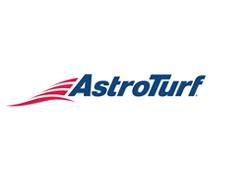AstroTurf Responds to Staph Controversy
"As the original category creator, we feel the obligation for the brand to be innovative," said Jon Pritchett, CEO of GeneralSports Venue, according to New Observer. GeneralSports acquired the exclusive North American rights to the AstroTurf brand, the first synthetic turf to be installed on a sports field in 1966, at the end of last year.
Earlier this month, a medical study reported that staph infections kill nearly 19,000 Americans each year, and outbreaks of infections among sports teams have proliferated. A
Still, some medical experts question the effectiveness of turf with built-in protection against mold, fungi and bacteria.
Dr. Jeffrey Engel, the state epidemiologist at the Division of Public Health, said there is no proof that it will help prevent staph infections.
"I think disinfecting AstroTurf is folly without any scientific evidence," Engel said. "It may deal with the fear but not with the hazard."
The issue isn't that synthetic turf is a breeding ground for infections, said Engel. The problem is that falling on synthetic turf can produce abrasions that later become infected.
"By no means would we suggest that synthetic turf correlates to MRSA, or staph infections," said Pritchett, the GeneralSports CEO. "This is just another way to do the kind of things that the Centers for Disease Control suggest" for preventing staph infections, such as washing hands and avoiding towel-sharing.
He says AstroTurf only raised its prices "insignificantly" to account for the extra cost of such protection. He declined to specify how much prices have risen.
Engel acknowledges that the feature could be an effective sales tool: "You could probably convince an athletic director or coach, but not an expert like me."
Transforming itself from a company that sold its own relatively obscure brand of turf, called GameDay, to the company behind the renowned AstroTurf brand has proved to be a sales bonanza for GeneralSports.
The company's turf sales are on track to rise more than 75% this year, said Pritchett, pushing overall sales up more than 50% to "the $30 million range," he said.
By contrast, Pritchett expects industry-wide turf sales to rise 15% to 20% this year.
